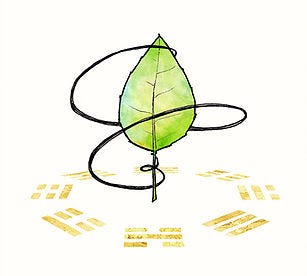A book project seems to be percolating, and to keep myself from toiling entirely in the dark I’ll probably continue to share snippets here, like I did with last week’s Horse, Bird, Muffin post, and now this from the Intro section. I hope you find it interesting, and I’ll be glad for any feedback.
The people who find their way to my office are often those who've suffered at the hands of the medical system. Some have been through the ringer with countless specialists, tests, and drugs, only to end up back at square one: still struggling, still seeking answers. As far as this group is concerned, modern medicine has failed them.
Another group includes those who've had their life saved by doctors--so why do they feel like death? This group includes people who've been through radiation and/or chemo, major surgery, or who have simply had one too many rounds of antibiotics. They've survived, but at the cost of being run down and beat up. They're in desperate need of healing from the treatments they've endured.
The fact is modern medicine plays an incredible offense: it knows how to kill pathogens, excise tumors, and combat many kinds of disease. Combat, in fact, is its main approach to curing people: notice how many drugs are 'anti'- something. Antibiotic. Anticholinergic. Antidepressant. What's missing is the 'pro'-side of the equation: probiotics in the broadest sense of 'treatments that support and nourish life.'
In this area, modern medicine has a lot to learn from older wisdom traditions and healing practices. In particular, there is a great deal to be gleaned from Asia, where some of the world's most complex and effective systems of medicine have been passed down right to the present day. These systems include:
Traditional East Asian Medicine (including Traditional Chinese Medicine), famous worldwide for acupuncture, fiery moxibustion, and herbal prescriptions
Ayurveda from India, most well-known in the US and Europe for its oil-intensive hands-on treatments and dietary approaches, but also full of herbal wisdom, yogic healing methods and more
Unani-Tibb - Perso-Arabic medicine with roots in ancient Greek medicine, commonly practiced throughout India, Pakistan and Persia.
Tibetan Medicine, closely interwoven with Tibetan Buddhism - this system is not always easy to access in the West but can be very potent, especially its brilliant herbal pills and preparations
Each of these traditions is distinct from one another, and each is internally diverse (having many sub-lineages and schools). However, they share many things in common.
First, all these Asian medicines recognize individual difference, or constitution, and know how to treat accordingly. What works well for one sort of person will not work well for another; no one is a statistical average.
Second, they all include measures to build patients up as well as ways to go on the attack. That is, they include well-developed restorative strategies and techniques for those who are convalescing, elderly, or delicate by nature.
Third, they all place heavy emphasis on the importance of digestion and diet in the recovery and maintenance of health.
Fourth, they all look beyond the immediately perceptible to get at underlying patterns and dynamics. That's to say, they have ways of working at a subtle level rather than focusing only on what can be seen, touched or measured. This can seem as magical to modern eyes as brain surgery and CT scans would seem to a 15th century Mongolian physician. Which brings us to our fifth and last point.
These medicines all emerge from holistic worldviews radically different from the reductionist, materialist ideology most readers (as well as the author) grew up steeped in. Their clinical strengths emerge naturally from their intellectual underpinnings, much as PET scans emerge from quantum physics. Patients need not share the views or philosophies at play in an acupuncture session or herbal formula in order to benefit from these modalities. But those who desire to dive deeper as students and practitioners of these medicines are confronted with the need to accommodate profoundly different ways of thinking and knowing. To open their hearts and minds in ways that will transform them not only as clinicians, but as human beings.
Restorative Medicine via JonathanHadasEdwards.com



